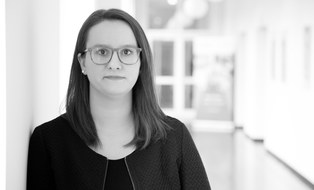Application Area Rare Diseases
Vision
The application area "rare diseases" is dedicated to optimizing the use of secondary data to promote and strengthen national and international research in this field. Particular emphasis is placed on the use of routine data and external data sources to enable innovative approaches to data integration and analysis, as well as advancing medical knowledge about rare diseases.
Rare diseases affect fewer than 5 in 10,000 people but account for approximately 3-6% of the total population, comprising an estimated 5,000-8,000 different conditions. The combination of the large number of people affected, the diversity of the diseases, and the complexity of their manifestations (such as chronicity, physical disability, and mental illness) poses significant challenges for the healthcare system. A correct diagnosis and adequate therapy are complicated by a lack of expertise regarding the various conditions, the geographical distribution of experts, and individual documentation practices. Studies show that patients with rare diseases in Germany receive a correct diagnosis, on average, only after 5 to 30 years, and about 69% of those affected are initially misdiagnosed.
In addition to promoting interdisciplinary and international collaboration among experts and the continuous advancement of medical knowledge about rare diseases, the digitalization of the healthcare system and the increase in interoperability are seen as major opportunities. A central concern is the improvement of semantic and syntactic interoperability, which ensures high-quality and consistent documentation and the seamless integration of data across institutional and national borders.
Our research focuses in particular on the following questions:
- Quality assurance and harmonization: How can data from individuals with rare diseases be recorded and harmonized in a structured way to ensure its usability in research?
- Interoperability and documentation: Which methods and standards can support the documentation of data while ensuring the highest possible interoperability?
- Data integration: What approaches are needed to improve data integration in order to combine data from different sources?
- Benefits for care and research: How can the data obtained be optimally used for medical care and research, and what concrete added value can it provide for those affected?
The staff of this focus area are eager to exchange ideas and welcome additional input, because RARENESS COMES IN LARGE QUANTITIES.
Focus Areas
- Secondary data use for rare diseases
- Terminologies for rare diseases (e.g., ORPHAcodes, Alpha-ID-SE, HPO)
- Documentation support and data integration
- Additional Focuses:
- Undiagnosed diseases
- Genetic diseases
- Registries for rare diseases
Contact Person
 © Michéle Kümmel
© Michéle Kümmel
Research fellow
NameMs Dipl.-Wi.-Inf. Michéle Zoch
Send encrypted email via the SecureMail portal (for TUD external users only).
Selected Projects
- BIDA-SE
- CORD-MI
- SATURN
- Collaboration with the UniversityCenter for Rare Diseases at the University Hospital Carl Gustav Carus

